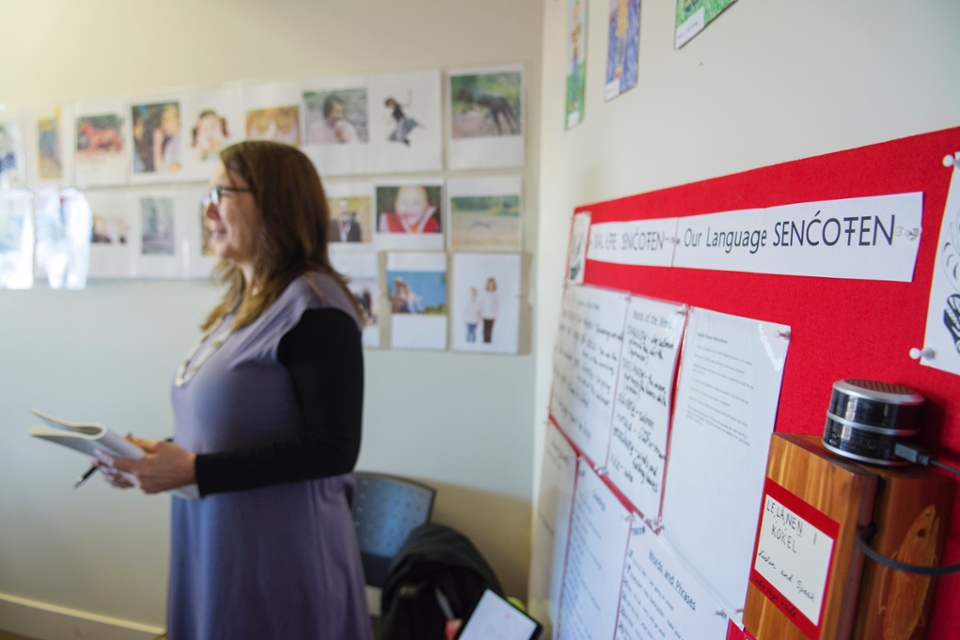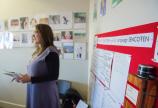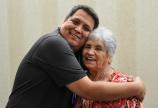One mind, one people and 42 Indigenous languages
- Suzanne Ahearne

A new language revitalization project led by UVic will bring new life and strength to at least 42 Indigenous languages in Canada.
NEȾOLṈEW̱, which translates as “one mind, one people” in SENĆOŦEN, will work with nine Indigenous-led partner organizations across the country, forming a learning and research network to strengthen efforts to revive Indigenous languages.
The six-year project, supported by a $2.5 million Social Sciences and Humanities Research Council (SSHRC) Partnership Grant, is led by Onowa McIvor in UVic’s Department of Indigenous Education with linguist Peter Jacobs, now at Simon Fraser University.
“This grant highlights a lot of hope and possibility,” says McIvor. “Across the country, intergenerational connections are being re-sown through language.”
McIvor says the project will help realize the goals of the Truth and Reconciliation Commission’s Calls to Action with such direct actions as: increasing Indigenous language audio resources for growing a radio and TV presence of Indigenous languages in Canada; promoting post-secondary Indigenous Language Revitalization (ILR) programs; improving community mechanisms for sharing the best language revitalization methods; and engaging other organizations in supporting Indigenous-led ILR programs.
A unique feature of the study is the focus on adult language learners, whom McIvor refers to as the “missing generation”—adults who had little opportunity to learn their ancestral language as children due to adoption, residential schooling, disconnection from their homelands and urbanization.
The Indigenous language revitalization movement has been mostly focused on school-based programs for children and youth. But in a previous study, co-leads McIvor and Jacobs identified adults as a “great untapped potential.”
The earlier study emphasized that learning to speak an Indigenous language is not just a booklearning exercise; the language needs to be spoken in everyday activities, such as speaking to children, praying, discussing the weather and how things are going, through to discussing history and philosophy, and conducting business and political matters.
This is our shared history. It's an opportunity to be part of reviving, remembering and continuing the real history of Canada through Indigenous languages.
—Onowa McIvor, Department of Indigenous Education, UVic


